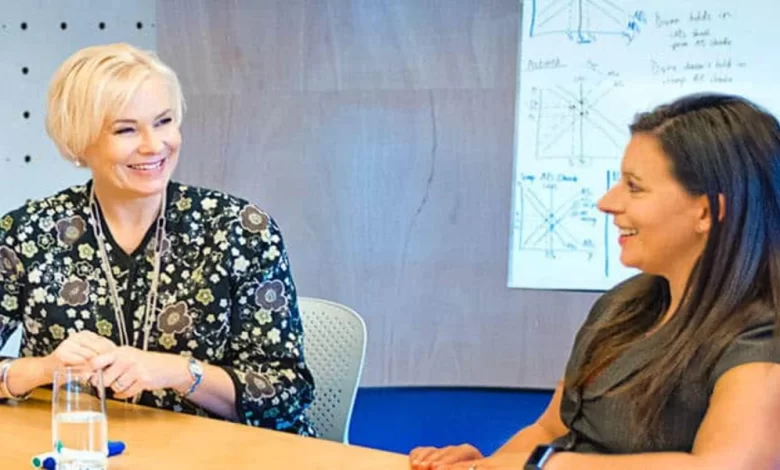A Good Coach’s Skills and Responsibilities

The job of the sports coach, Coaching Strategy, is to “allow the sportsman to attain levels of accomplishment that would not have been feasible if left to their efforts.” A mentoring discussion is where the trainer or their circumstances are the primary emphasis. .The talk benefitted the coacher’s thinking, behaviors, and learning; and If the discussion had not happened, the coached is unlikely to have improved in thinking and learning.
There are five fundamental coaching techniques.
Building Relationships and Rapport
Matching is one way to improve rapport. This entails being similar to the individual you wish to create rapport with. Copying attitude, voice, speech rate, gesture, and so on are simple techniques to develop rapport in a teaching environment.
Listening and Sensing at Different Levels
Because of their attentiveness, a skilled coach may see beyond what has been spoken and begin to notice what has gone unsaid. Several of us aren’t entirely focused the bulk of the time. As a result, you must pay heed more attentively and efficiently as a coach than is typical in daily conversation.
Giving Positive Feedback
As a coach, Coach Jessica Michaels you may also assist by providing constructive comments. This might range from a simple encouraging comment in the present moment to a more deliberate, challenging evaluation of someone’s attitude or conduct. Feedback must be given with a good aim, be based on evidence or conduct, and be constructive and valuable. It is an ideal moment to deliver criticism when your coachee doesn’t really appear to have realized something about a scenario or appears unhelpful.
Coaching Competencies Required
Professional Preparation
That includes a coach’s capacity to meet practice standards, adhere to ethical norms, and draft a coaching agreement. While many businesses have varying ethical requirements, every coach should be able to Effective communicate.
Although it may sound obvious, a coach with strong communication skills may improve the whole experience regarding outcomes and working interpersonal connections.
Giving Feedback and Providing Assistance
We may even seek advice from sports coaches, who are players’ most effective sources of feedback. Their support is crucial in assisting players in developing, among other things, self-efficacy, a feeling of competence, self-esteem, and ego.
Learning and Results in Motion
Coaches must regularly adjust a client’s perceptions or aid them in attaining new understandings to achieve achievements. This usually requires increasing the coachee’s understanding of events, emotions, and points of view, for instance, when clients describe as roadblocks aren’t anchor in reality. A trainer can help the client create objectives and plan steps to achieve the desired result.
Motivational Techniques
As a result, how can good management encourage their client? There are several ways to keep customers motivated and moving forward, such as effective goal-setting, offering appropriate assistance, and supporting them in overcoming difficulties.
Setting Specific Goals
Assisting clients in setting suitable objectives is, in and of itself, a critical behavioral approach. Goal setting in life coaching comprises identifying your client’s beliefs and converting them into actual, explicit promises.
Promoting a Growth-Minded Attitude
Coaches may demonstrate a happy attitude in their encounters and urge clients to do so. Encourage a positive outlook in clients to raise their drive to improve and expand their talents. When clients are engaged in learning, they are much more capable of conquering problems because of passion and desire drive effort.
A helpful coach who motivates clients to create a positive mentality may help them embrace their shortcomings and any errors they make along the path, improving their self-confidence and motivating them the put their improvement goals into action.
Improving Resilience
Adversity and setbacks are unavoidable in life, and they occur regularly during a person’s coaching journey. Resilience is the key.
Coaching skills
You must organize, stay safe, create rapport, offer instruction and explanations, demonstrate, watch, analyze, question, and provide coach feedback.
Organizing
When planning a training session, consider how you will manage all athletes, tools, and areas – organize athletes based on their numbers, ability, and activities – and ensure that the plan is safe throughout the session.
Safety
To re-create a safe atmosphere for athletes, assess the dangers of a place, apparatus, and athletes; continue to recognize hazards during the practice; maintain athletes on task, and practice correct progressions.
Relationship Building
Learn and utilize the players’ names, smile and maintain eye contact, teach this specific individual rather than the sport, and show attention and appreciation for the athletes.
Clarification and instruction
When offering Instruction and Explanation, think about and plan what you’re going to say, attract the athlete’s interest, ensure everyone can hear you, keep it basic and to the point, and evaluate their knowledge by asking open questions.
Demonstration
Make sure you’re in a position where the athletes can see and listen to the reader, recognize 1 or 2 central themes for the athletes to concentrate on, and repeat this same protest in silence twice or three times (side, returning, and front perspective), ask if they have any questions, and test their comprehension by open-ended questions. It is sometimes best to have others conduct the demonstration.
Observation and Assessment
Divide the action into stages, concentrate on a single stage at a time, recognize the activity from various perspectives and distances, evaluate action to your is, and evaluate which reparative activity is necessary. Keep in mind that your ears may also detect.
Feedback
Encourage the same athlete to ego by asking relevant questions, offering precise but plain recommendations, limiting the knowledge between one or two positions. Confirming the athlete knows what to do next, and making the entire process enjoyable.
Final Verdict
No one else is born with this level of clinical expertise, and being a great coach does not require a thousand years of expertise. Many significant concepts have been broken down into smaller ones below, but it’s clear that a lot gets down to a few essential parts.
Coaches employ emotional intelligence to interact with customers, understand their perspectives, provide feedback, and more. All coaches use intelligence to put important concepts into action.








